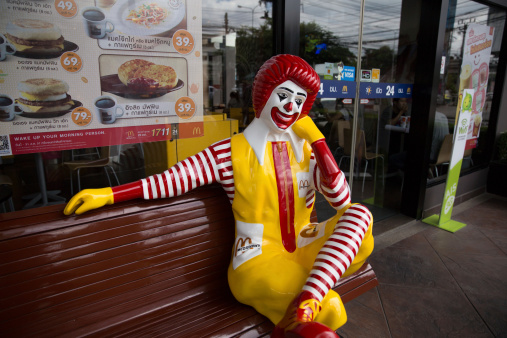By Cliff Ennico
Buying a franchise is exactly halfway between owning your own business and working for someone else. When you buy a franchise, you are responsible for profits and losses at your franchise outlet, hire and fire employees, and do all the stuff that goes with running your own business.
But in a franchise you are executing the franchise company’s business plan, not your own. The franchise company (called a “franchisor”) tells you what to do, and how to do it. When the franchisor changes the business model, you as a franchisee have to change your business accordingly, no questions asked. Most franchises (especially in the fast-food industry) have operating manuals with hundreds or even thousands of rules telling you exactly what to do and how to do it.
That’s very comforting to a lot of franchisees who fear failure and trust that the franchisor knows a lot more about the business than they do. But a recent case out of Virginia will be calling the entire franchise model into question, and it’s something you want to keep an eye on if you own a franchise or are thinking about buying one.
In this case, a Virginia franchisee of McDonalds® fired a bunch of African-American employees, who promptly sued the franchisee for racial discrimination based on certain remarks the franchisee had made before firing them. But they didn’t stop there. They also sued parent corporation McDonalds Corp. – even though it didn’t know about the alleged discrimination and certainly wouldn’t have condoned it if they did — on the theory that the local franchisee was acting as the “agent” of the parent corporation such that the latter was responsible for the franchisee’s alleged discrimination.
Generally, a principal is legally responsible for the acts and omissions of its agents. That’s why in virtually every franchise agreement I have ever reviewed there is a detailed provision saying that the franchisee is NOT an agent or employee of the franchisor but rather an independent contractor acting independently and in its own best interests.
But how, you may ask, can you reconcile “independent contractor” status with the amount of direction and control that a franchisor normally exercises over its franchisees’ operations? As Shakespeare would have said, “ay, there’s the rub.”
The ex-employees in this case cited an opinion issued last year by the general counsel of the National Labor Relations Board (NLRB) saying that “under certain circumstances” a franchisor could be held accountable for the acts of its franchisees. The opinion of an in-house lawyer (even one for a government agency) does not have the force of law unless a court agrees with it, and in the McDonalds case it seems that we are about to find out exactly what those “certain circumstances” are. Given that the case involves racial discrimination – and a pretty blatant instance at that (this franchisee is alleged to have said some really, really dumb things in the presence of witnesses) – we may be seeing some rewriting of the rules that govern the franchisor-franchisee relationship. Stay tuned.
It therefore came as no surprise when I read an article in The Wall Street Journal this past week about how some franchises are restructuring their operations to give franchisees more direct control over their businesses. In this new model, the franchisor trains the franchisee and helps it put together the “back office” systems that run the business, but gives the franchisee more freedom to determine the mix of products and services it will provide its customers at the “front end”.
So, for example, a Louisiana franchisee of a hamburger chain who wants to offer “Cajun Chicken” on his menu in response to local market conditions could do so without the franchisor’s permission, even though no other franchisee was doing the same, as long as he continues to use the franchisor’s back office system and pays royalties to the franchisor for doing so.
Historically, franchises have always been concerned first and foremost about consistency and uniformity in their operations. If you visit a Burger King franchise in Bangor, Maine, you get exactly the same customer experience as you would get in a Burger King franchise in San Diego, California, and all points in between. When changes happen, all the franchisees move in military “lock step” so that nobody stands out or looks different.
If the plaintiffs in the McDonalds® discrimination case are successful, some franchisors will need to reconsider that “top-down” model. Many franchisees I speak to feel they know their local markets much better than “corporate” does, and are willing to trade off a strong national brand identity for the opportunity to generate more revenue and serve their customers better.
Many franchisees want their franchisors to be more of a “consultant” who will help them run their businesses, rather than a “boss” telling them what they can and cannot do. Holding franchisors liable for their franchisees’ activities may well push more of them in that direction.
Cliff Ennico (www.succeedinginyourbusiness.com), a leading expert on small business law and taxes, is the author of “Small Business Survival Guide,” “The eBay Seller’s Tax and Legal Answer Book” and 15 other books.







